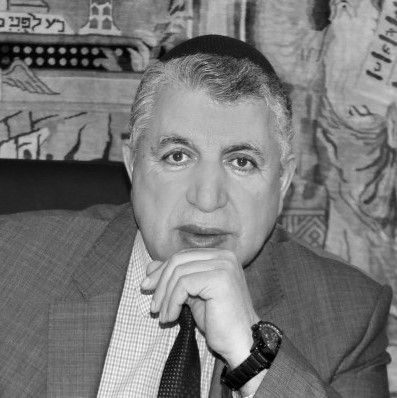On January 19, 1990, friends were scheduled to visit us to celebrate my daughter’s birthday in Baku, Azerbaijan. But our plans were suddenly changed by the news of massacres taking place in different parts of the city. We urgently sent messages to our friends to stay home, for the safety of their lives.
That very same January evening, in order to suppress Azerbaijan’s national liberation movement and prevent the disintegration of the USSR, the 26,000-strong Soviet Red army troops stormed Baku, and unloaded bullets in every direction at peaceful demonstrators, murdering hundreds of innocent people, on a killing spree that continued into the morning of January 20. Almost all victims were civilians, most tragically including women and even children. The news spread fast, and communities throughout Azerbaijan heard of what happened and no one could believe the story. It was a day we will never forget; the heartbreak was felt in every community, in every home.
It seems like everyone in Azerbaijan knows somebody who died on those days, and together, our nation mourns for the death of every innocent victim. We mourn for the many Muslim and Christian victims, brothers and sisters of the same nation who were killed on that brutal day. Many know that Azerbaijan is considered a special place for people of every faith and culture to live harmoniously, as our history and daily life demonstrates. The unity that is fundamental to our country is also fundamental to the national attitudes and emotions surrounding this anniversary.
In our Jewish communities specifically, the tragic news of murder of Vera Bessantina, a young Jewish girl, struck us very hard, deeply in the heart. Vera was only 16 years old and had just successfully completed her studies in music wishing to become a great violinist one day. We learned that Vera had thought to stay inside her home to protect herself during the siege, only to look out the window for a moment of time when a Soviet sniper took her from the world forever. Born on the same day as the anniversary of Black January and Vera’s brutal murder, our daughter was almost the same age as Vera. For this reason, my wife and I are very sensitive to the memory of Vera, and we see a very direct and personal lesson in this parallel, to remember and hold tight the precious gift of life.
We also mourn other members of our Jewish communities like Ian Meyerovich, who endured 20 bullets through his body before the Soviet soldiers left him for dead, and Alexander Markhevka, the hero who was killed in an ambulance as he rushed to save the wounded, scattered throughout the city.
In the Mountainous Jewish synagogues in Baku and Quba, we held a special service for every day of this week through January 20th. Our communities have very deep feelings on the memory of Black January. For my family, every year since the massacre, the anniversary day brings mixed emotions. We balance the true joy of the anniversary of our daughter's birth, and also memories of the terrifying nightmare of Black January.
Even in the sadness of remembering Black January, something in me looks for a positive, as if to spite it all. As I remember Black January, in all the catastrophe, I manage to see something wonderful that came out of it. That is the truth of the courageous defiance of our people against the Soviet murderers, and the following restoration of Azerbaijan’s long-sought freedom and independence. Immediately after the massacre, the Azerbaijani people refused to be intimidated, and defying the curfew imposed by Soviet authorities, filled Baku’s main square for the funeral in honor of the victims. Our opposition grew quickly to over one million strong, mourning in the streets, and showing our armed enemies that even after they commit massacres upon ordinary citizens, the courage in Azerbaijan would be stronger tomorrow. This massacre and the following defiance marked the beginning of the bitter end for the Soviet Union.
My family experience of Black January, celebrating the miracle of life and commemorating the tragedy of death in the same day, it is really a symbol for the powerful message of hope within this unspeakable time in our history. At the darkest points of life, even at the point of brutal death, we are profoundly blessed with unparalleled gifts and unbeatable strength.
As we remember our fallen brothers and sisters, and raise our heads high with the pride of survivors, we hope for a time to come soon that will include no new days of mourning to add to the calendar, when this cause for grief only remains in the memory of our past.
In Azerbaijan, Los Angeles, Hebron, or Paris; for all of us mourning together, I am grateful that at least we have each other. That is what makes it possible for us to move forward with life, giving to us strength to honor those who lost their lives and to never forget their bravery.























 More news and opinions than at a Shabbat dinner, right in your inbox.
More news and opinions than at a Shabbat dinner, right in your inbox.